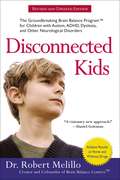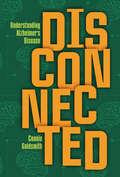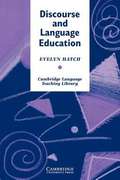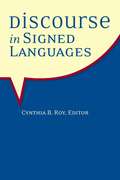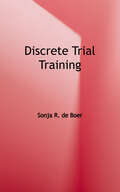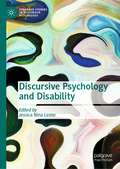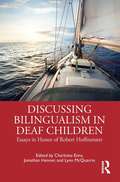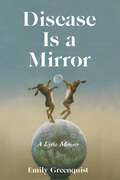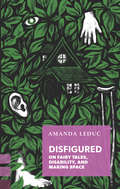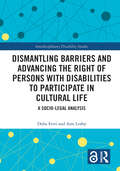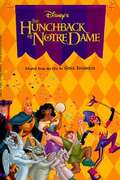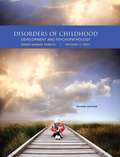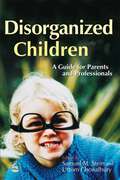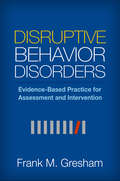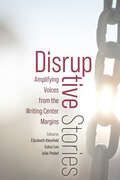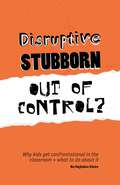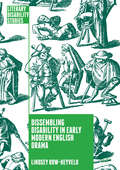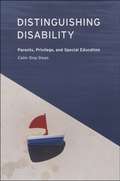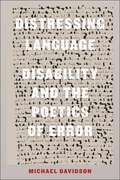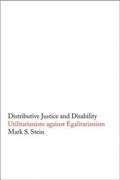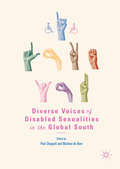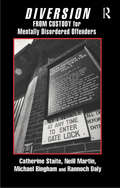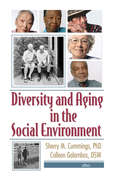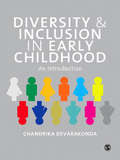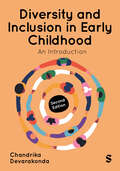- Table View
- List View
Disconnected Kids: The Groundbreaking Brain Balance Program for Children with Autism, ADHD, Dyslexia, and Other Neurological Disorders (The Disconnected Kids Series)
by Robert MelilloThe proven, drug-free program to treat the cause-not just the symptoms-of autism spectrum disorders and related conditions. Each year, an estimated 1.5 million children-one out of every six-are diagnosed with autism, Asperger's syndrome, ADHD, dyslexia, and obsessive compulsive disorder. Dr. Robert Melillo brings a fundamentally new understanding to the cause of these conditions with his revolutionary Brain Balance Program(tm). It has achieved real, fully documented results that have dramatically improved the quality of life for children and their families in every aspect: behavioral, emotional, academic, and social. Disconnected Kids shows parents how to use this drug-free approach at home, including:Fully customizable exercises that target physical, sensory, and academic performanceA behavior modification planAdvice for identifying food sensitivities that play a hidden roleA follow-up program that helps to ensure lasting results
Disconnected: Understanding Alzheimer's Disease
by Connie Goldsmith“The common perception of Alzheimer’s from people who haven’t experienced it is that it’s more like a ‘quirk’ which all elderly people experience at some point. But Alzheimer’s is so much more than simple forgetfulness. With the memory loss comes confusion . . . What was once the bedroom turns into a frightening place . . . . They may not recognize family members and instead see them as strangers with unknown intentions. This gives them so much stress every day that they may lash out or become depressed.” —Charlie Poole, Alzheimer’s caregiver Alzheimer’s patients are one of the fastest-growing populations among aging communities in the United States. In 2024 roughly 6.9 million Americans aged sixty-five and older had Alzheimer’s disease. By 2050 that number is set to nearly double. An Alzheimer’s diagnosis affects more than just the patient—it impacts their family and friends too. As the disease progresses, the patient’s memory deteriorates, and their behavior may suddenly change. They may need more attention, care, and supervision. Many people are thrust into the role of a caregiver without preparation or knowledge of what's to come. In Disconnected: Understanding Alzheimer’s Disease, author and registered nurse Connie Goldsmith looks at the stages of Alzheimer’s, details current clinical research, and shares more than a dozen stories of patients and their families. No matter what age you are, it’s important to grow awareness for Alzheimer’s, recognize its signs and symptoms—and learn what you can do in the event that someone you love is diagnosed with the disease.
Discourse and Language Education (Cambridge Language Teaching Library)
by Evelyn HatchDiscourse analysis is the study of how communication--spoken and written--is structured so that it is socially appropriate and linguistically accurate. <P><P>This book gives practical experience in analyzing discourse. It includes analyses of spoken language--conversations, classroom interactions, speech events, and scripts--and written language--from formal rhetorical structures of composition to the informal style of personal letters. <P>Because the organization of discourse differs across languages, example data are drawn from native speakers and language learners of all ages, backgrounds, and proficiency levels. Thus, Discourse and Language Education will be of great interest to teachers of ESL/EFL, foreign language teachers, and special education teachers, especially those working with the hearing impaired.
Discourse in Signed Languages
by Cynthia B. RoyIn this volume, editor Cynthia B. Roy presents a stellar cast of cognitive linguists, sociolinguists, and discourse analysts to discover and demonstrate how sign language users make sense of what is going on within their social and cultural contexts in face-to-face interactions. In the first chapter, Paul Dudis presents an innovative perspective on depiction in discourse. Mary Thumann follows with her observations on constructed dialogue and constructed action. Jack Hoza delineates the discourse and politeness functions of hey and well in ASL as examples of discourse markers in the third chapter. Laurie Swabey investigates reference in ASL discourse in the fourth chapter. In Chapter 5, Christopher Stone offers insights on register related to genre in British Sign Language discourse, and Daniel Roush addresses in Chapter 6 the "conduit" metaphor in English and ASL. Jeffrey Davis completes this collection by mapping out the nature of discourse in Plains Indian Sign Language, a previously unstudied language. The major thread that ties together the work of these varying linguists is their common focus on the forms and functions of sign languages used by people in actual situations. They each provide new keys to answering how thoughts expressed in one setting with one term or one utterance may mean something totally different when expressed in a different setting with different participants and different purposes.
Discrete Trial Training
by Sonja R. DeBoerDiscrete trial training (DTT) is a method of teaching individuals with autism spectrum disorder (ASD) based on applied behavior analysis (ABA). Skills are broken into discrete steps and then taught in massed trials. With DTT, steps are taught one at a time, instead of teaching an entire skill all at once. Concepts covered include errorless learning, methods of reinforcement, and how to use behavior momentum. The text explains how to collect, interpret, and use data to make teaching decisions. Finally, the text details a method for evaluating implementation of DTT.
Discursive Psychology and Disability (Palgrave Studies in Discursive Psychology)
by Jessica Nina LesterThis book explores how discursive psychology (DP) research can be applied to disability and the everyday and institutional constructions of bodymind differences. Bringing together both theoretical and empirical work, it illustrates how DP might be leveraged to make visible nuanced understandings of disability and difference writ large. The authors argue that DP can attend to how such realities are made relevant, dealt with, and negotiated within social practices in the study of disability. They contend that DP can be used to unearth the nuanced and frequently taken for granted ways in which disability is made real in both everyday and institutional talk, and can highlight the very ways in which differences are embodied in social practices – specifically at the level of talk and text. This book demonstrates that rather than simply staying at the level of theory, DP scholars can make visible the actual means by which disabilities and differences more broadly are made real, resisted, contested, and negotiated in everyday social actions. This book aims to expand conceptions of disability and to deepen the – at present, primarily theoretical – critiques of medicalization.
Discussing Bilingualism in Deaf Children: Essays in Honor of Robert Hoffmeister
by Charlotte EnnsThis collection unites expert scholars in a comprehensive survey of critical topics in bilingual deaf education. Drawing on the work of Dr. Robert Hoffmeister, chapters explore the concept that a strong first language is critical to later learning and literacy development. In thought-provoking essays, authors discuss the theoretical underpinnings of bilingual deaf education, teaching strategies for deaf students, and the unique challenges of signed language assessment. Essential for anyone looking to expand their understanding of bilingualism and deafness, this volume reflects Dr. Hoffmeister’s impact on the field while demonstrating the ultimate resilience of human language and literacy systems.
Disease Is a Mirror: A Lyric Memoir
by Emily GreenquistInterweaving imagery and prose, Disease Is a Mirror is a lyric memoir exploring illness, identity, intimacy, and the evolving self. Greenquist initially chronicles, and then artfully abstracts, her story, opening &“the mirrored door&” to the elusive realities of a life-changing diagnosis. Her narrative shows us that a diagnosis is not merely a clinical timeline; it is snails and rabbits, code and lab coats, love and clumsiness. Like an exquisite corpse, Disease Is a Mirror invites readers to explore its intricate and unconventional intersections, each reflection carefully curated; each void, a devastating erasure.
Disfigured: On Fairy Tales, Disability, and Making Space (Exploded Views)
by Amanda LeducFairy tales shape how we see the world, so what happens when you identify more with the Beast than Beauty? If every disabled character is mocked and mistreated, how does the Beast ever imagine a happily-ever-after? Amanda Leduc looks at fairy tales from the Brothers Grimm to Disney, showing us how they influence our expectations and behaviour and linking the quest for disability rights to new kinds of stories that celebrate difference. "Leduc persuasively illustrates the power of stories to affect reality in this painstakingly researched and provocative study that invites us to consider our favorite folktales from another angle." —Sara Shreve, Library Journal
Dismantling Barriers and Advancing the Right of Persons with Disabilities to Participate in Cultural Life: A Socio-Legal Analysis (Interdisciplinary Disability Studies)
by Delia Ferri Ann LeahyThe right to participate in cultural life is profoundly rooted in international human rights law, and, with regard to persons with disabilities, it is enunciated in Article 30 of the UN Convention on the Rights of Persons with Disabilities (CRPD or the Convention). This provision requires States Parties to the Convention to ensure accessibility of cultural materials, services and activities, and cultural heritage, and to support the creative and artistic potential of persons with disabilities. However, people with disabilities continue to face barriers to cultural participation. On foot of a pan-European empirical study and a socio-legal analysis, this book discusses the normative content of Article 30 CRPD and its implementation. It identifies and categorises barriers to cultural participation, highlighting new paths to operationalise Article 30 CRPD. This book will be of interest to scholars and students working in disability law, socio-legal studies, international human rights law, as well as cultural studies, disability studies, and cultural policies.
Disney's The Hunchback of Notre Dame (Junior Novelization)
by Gina IngogliaSet in the picturesque Parisian streets of the fifteenth century, this adventure centers on Quasimodo, the gentle and lonely hunchbacked bell-ringer confined to the tower of the Notre Dame cathedral. Quasimodo finds a friend in the gypsy Esmeralda.
Disorders of Childhood: Development and Psychopathology
by Robin Hornik Parritz Michael F. TroyWritten with the whole child in mind, this book discusses disorders in connection with the different stages of development, providing both a meaningful framework to promote learning. The authors emphasize multi-factor explanations of disorders as well as developmental frameworks and developmental pathways--presenting disorders and sets of disorders in the order in which they typically appear in a child's life. They also focus on the child-in-context (calling attention to the multiple settings in which the child is embedded) and emphasize the importance of taking a broad view that considers the whole child and his or her patterns of interest, abilities, and strengths, rather than a narrow view of a disorder or developmental delay. As a result of this holistic approach, which reflects the most up-to-date understanding of child and adolescent psychopathology, readers learn to think about disorders in the same way that caring adults think about disorders they encounter every day--in terms of an individual child who is coping with distress and dysfunction. Available with InfoTrac Student Collections http://gocengage.com/infotrac.
Disorganized Children: A Guide for Parents and Professionals
by Uttom Chowdhury Samuel Stein Rebecca ChilversDisorganized children' may display a range of behaviours symptomatic of, for example, ADHD, autism and conduct disorders, but they often fail to meet all the criteria for a clear diagnosis. In this book, psychiatrists, speech, family and occupational therapists and neurodevelopment specialists present a range of behavioural and psychological strategies to help disorganized children improve concentration and performance in the classroom and deal with a variety of behaviour and social interaction difficulties. The authors also provide information and interventions for dyslexia, dyspraxia, OCD and schizophrenia, among others. The combination of information, exercises and case studies makes this a valuable tool for use by parents, health care and teaching professionals, and the authors provide an insight into the mind of disorganized children and practical guidance on how best to help them achieve their full potential.
Disruptive Behavior Disorders
by Frank M. GreshamSchools often resort to ineffective, punitive interventions for the 10% of K-8 students whose challenging behavior interferes with their own and their classmates' learning. This book fills a crucial need by describing ways to provide meaningful supports to students with disruptive behavior disorders. Prominent authority Frank M. Gresham weaves together current research, assessment and intervention guidelines, and illustrative case studies. He reviews a broad range of evidence-based practices and offers recommendations for selecting, implementing, and evaluating them within a multi-tiered framework. Coverage includes school- and home-based approaches, multicomponent programs, prevention strategies, and social skills training.
Disruptive Stories: Amplifying Voices from the Writing Center Margins
by Elizabeth Kleinfeld Sohui Lee Julie PrebelDisruptive Stories uses an activist editing method to select and publish authors that have been marginalized in scholarly conversations and enrich the understanding of lived writing center experiences that have been underrepresented in writing center scholarship. These chapters explore how marginality affects writing centers, the people who work in them, and the scholarship generated from them by examining the consequences—both positive and negative—of marginalization through a mix of narratives and research. Contributors provide unique perspectives ranging across status, role, nationality, race, and ability. While US tenure-track writing center administrators (WCAs) do not make up the majority of those who hold WCA positions in writing centers, they are more likely to be the storytellers of the writing center grand narrative. They publish more, present more conference papers, edit more journals, and participate more in organizational leadership. This collection complicates that narrative by adding marginalized voices and experiences in three thematic categories: structural marginalization, globalization and marginalization, and embodied marginalization. Disruptive Stories spurs further conversations about ways to improve the review process in writing center scholarship so that it more accurately reflects the growing diversity of its administrators and practitioners.
Disruptive, Stubborn, Out of Control?: Why kids get confrontational in the classroom, and what to do about it
by Bo Hejlskov ElvénOne of the biggest challenges in the classroom is trying to teach when students act in unexpected and annoying ways. Based on the psychology of how children and people act, this book offers practical strategies for understanding why your students are behaving in the way they are, and how to react in a way that restores peace and harmony in the classroom. With many examples of typical confrontational behaviours and clues for how to understand and resolve the underlying issues, this book will be every stressed teacher's best friend.
Dissembling Disability in Early Modern English Drama (Literary Disability Studies)
by Lindsey Row-HeyveldWhy do able-bodied characters fake disability in 40 early modern English plays? This book uncovers a previously unexamined theatrical tradition and explores the way counterfeit disability captivated the Renaissance stage. Through detailed case studies of both lesser-known and canonical plays (by Shakespeare, Jonson, Marston, and others), Lindsey Row-Heyveld demonstrates why counterfeit disability proved so useful to early modern playwrights. Changing approaches to almsgiving in the English Reformation led to increasing concerns about feigned disability. The theater capitalized on those concerns, using the counterfeit-disability tradition to explore issues of charity, epistemology, and spectatorship. By illuminating this neglected tradition, this book fills an important gap in both disability history and literary studies, and explores how fears of counterfeit disability created a feedback loop of performance and suspicion. The result is the still-pervasive insistence that even genuinely disabled people must perform in order to, paradoxically, prove the authenticity of their impairments.
Distinguishing Disability: Parents, Privilege, and Special Education
by Colin Ong-DeanStudents in special education programs can have widely divergent experiences. For some, special education amounts to a dumping ground where schools unload their problem students, while for others, it provides access to services and accommodations that drastically improve chances of succeeding in school and beyond. Distinguishing Disabilityargues that this inequity in treatment is directly linked to the disparity in resources possessed by the students’ parents. Since the mid-1970s, federal law has empowered parents of public school children to intervene in virtually every aspect of the decision making involved in special education. However, Colin Ong-Dean reveals that this power is generally available only to those parents with the money, educational background, and confidence needed to make effective claims about their children’s disabilities and related needs. Ong-Dean documents this class divide by examining a wealth of evidence, including historic rates of learning disability diagnosis, court decisions, and advice literature for parents of disabled children. In an era of expanding special education enrollment,Distinguishing Disabilityis a timely analysis of the way this expansion has created new kinds of inequality.
Distressing Language: Disability and the Poetics of Error (Crip)
by Michael DavidsonThe role of disability and deafness in artDistressing Language is full of mistakes—errors of hearing, speaking, writing, and understanding. Michael Davidson engages the role of disability and deafness in contemporary aesthetics, exploring how physical and intellectual differences challenge our understanding of art and poetry. Where hearing and speaking are considered normative conditions of the human, what happens when words are misheard and misspoken? How have writers and artists, both disabled and non-disabled, used error as generative elements in contesting the presumed value of “sounding good”? Distressing Language grows out of the author’s experience of hearing loss in which misunderstandings have become a daily occurrence. Davidson maintains that verbal confusions are less an aberration in understanding than a component of new knowledge.Davidson discusses a range of sites, from captioning errors and Bad Lip Reads on YouTube, to the deaf artist Christine Sun Kim’s audiovisual installations, and a poetic reinterpretation of the Biblical Shibboleth responding to the atrocities of the Holocaust. Deafness becomes a guide in each chapter of Distressing Language, giving us a closer look at a range of artistic mediums and how artists are working with the axiom of “error” to produce novel subjecthoods and possibilities.
Distributive Justice and Disability: Utilitarianism Against Egalitarianism
by Mark S. SteinTheories of distributive justice are most severely tested in the area of disability. In this book, Mark Stein argues that utilitarianism performs better than egalitarian theories in this area: whereas egalitarian theories help the disabled either too little or too much, utilitarianism achieves the proper balance by placing resources where they will do the most good. Stein offers what may be the broadest critique of egalitarian theory from a utilitarian perspective. He addresses the work of egalitarian theorists John Rawls, Ronald Dworkin, Amartya Sen, Bruce Ackerman, Martha Nussbaum, Norman Daniels, Philippe Van Parijs, and others. Stein claims that egalitarians are often driven to borrow elements of utilitarianism in order to make their theories at all plausible. The book concludes with an acknowledgment that both utilitarians and egalitarians face problems in the distribution of life-saving medical resources. Stein advocates a version of utilitarianism that would distribute life-saving resources based on life expectancy, not quality of life. Egalitarian theories, he argues, ignore life expectancy and so are again found wanting. Distributive Justice and Disability is a powerful and engaging book that helps to reframe the debate between egalitarian and utilitarian thinkers.
Diverse Voices of Disabled Sexualities in the Global South
by Paul Chappell Marlene De BeerThis volume aims to critically engage with constructs and experiences of disabled sexualities through Africa, Asia, Latin America and the Caribbean. In doing so, it is hoped that the questions raised, relfections, analyses and arguments will provide readers with a catalyst through which to (re)think disabled sexualities from the perspective of the Global South. What makes this edited volume unique is besides chapters from emerging academics and disability activists who either live or work in the Global South, it also includes personal contributions from disabled people across the Global South. This volume takes a broad perspective on disabled sexualities addressing such areas as gender, race, culture, colonialism, body image, sexual pleasure, sexuality education, sexual access, sexual and reproductive health services, queer sexualities, and sexual rights and justice. The volume will be of interest to international and national organisations for people with disabilities, gender and sexuality researchers, health professionals, social workers, academics and students at all higher education and training institutions interested in disability, gender queer and sexuality studies.
Diversion from Custody for Mentally Disordered Offenders: A Practical Guide
by Catherine Staite Neill Martin Rannoch DalyThe authors aim to provide practical guidance to enable practitioners in the various criminal justice, health and social care agencies to divert mentally disordered offenders from prosecution and custody and to help prevent re-offending.
Diversity and Aging in the Social Environment
by Sherry M. Cummings Colleen GalambosToday, nearly one of every eight Americans is 65 or older, and by 2030, over 20% of the population will be in this age group. Are you prepared to work with this vastly diverse-and rapidly growing-population?This single source is designed to help social service professionals provide effective services to America&’s vastly diverse and rapidly growing elderly population. Diversity and Aging in the Social Environment explores the impact of race/ethnicity, gender, sexual orientation, and geographic location on elders&’ strengths, challenges, needs, and resources to provide you with a more complete understanding of the issues elders face. In order to be more responsive to older adults, social workers and other human service professionals need to enhance their knowledge of the aging population and the factors that impact the way seniors interact with society, organizations, community resources, neighborhoods, support networks, kinship groups, family, and friends. Diversity and Aging in the Social Environment examines differences in race, ethnicity, geographical location, sexual orientation, religion, and health status to help current and future human service professionals provide culturally competent services to the diverse range of elderly people they serve. In addition, it addresses the wide disparity that exists for older Americans in terms of income and assets, number of chronic conditions, functional and cognitive impairment, housing arrangements, and access to health care. This book provides a context for the examination of diversity issues among older adults by describing and discussing several theoretical perspectives on aging that highlight important aspects of diversity. Next, you&’ll find thoughtful examinations of: issues and challenges faced by lesbian, gay, bisexual, and transgender elders-and the strengths they bring into later life the impact of gender, race, and sexual orientation on prevalence rates, risk factors, methods of disease contraction, and mortality rates among older adults with HIV/AIDS-along with a discussion of the psychosocial issues they face diverse characteristics of custodial grandparents-and the influence of the caregivers&’ gender, race, age, and geographic location on methods of care and available caregiver support differences in caregiver characteristics, service utilization, caregiver strain, and coping mechanisms among several racial/ethnic groups of adults who care for elderly, disabled, and ill persons cultural/religious factors that influence interactions between health care personnel and Japanese-American elders the relationship between acculturation and depressive symptoms among Mexican-American couples life challenges facing Jewish and African-American elders-with a look at each group&’s coping mechanisms differences in religious/spiritual coping skills among Native American, African-American, and white elders psychological well-being and religiosity among a diverse group of rural elders
Diversity and Inclusion in Early Childhood: An Introduction
by Chandrika DevarakondaCovering a wide range of concepts and taking a broader perspective of what inclusion entail, this book offers an overview of current research, policy and practice in diversity and inclusion in the early years. It is a clear introduction to what inclusive practice means for those working with young children in the early stages of their lives. With case studies and activities designed to help students relate to diverse situations, the author discusses the main issues surrounding: - race - gender - culture - disability and Special Educational Needs - English as an Additional Language - Traveller children - the contexts of inclusion and exclusion - good practice in early childhood settings - different perspectives of inclusion This is essential reading for students studying inclusion and diversity on early childhood or early years courses, and those seeking to promote good practice and enable all children to develop to their full potential irrespective of their background. 'The success of this book is in its ability to explore inclusion from a wide perspective. Offering a range of thought-provoking material, such as reflective questions, debates and controversies, practitioner, parent and children's views, legislation, activities, and examples of good practice, will keep readers interested and actively engaged throughout the book'-Dr Anna Kilderry, Senior Lecturer, Early Childhood Education, Victoria University, Melbourne, Australia Chandrika Devarakonda is a Senior Lecturer in the Faculty of Education and Children's Services at the University of Chester.
Diversity and Inclusion in Early Childhood: An Introduction
by Chandrika DevarakondaCovering a range of concepts and taking a broad perspective of what inclusion entails, this book offers an overview of current research, policy, and practice in diversity and inclusion in the early years. With case studies and activities designed to help students relate to diverse situations, the author discusses topics ranging from race, gender, and culture, to SEND and traveller children. This updated edition contains: * New chapter on Intersectionality * New chapter on Poverty & Inclusion * New chapter on Medical Needs & Inclusion * Revised references to policy and legislation * Updated content throughout to fit contemporary contexts
